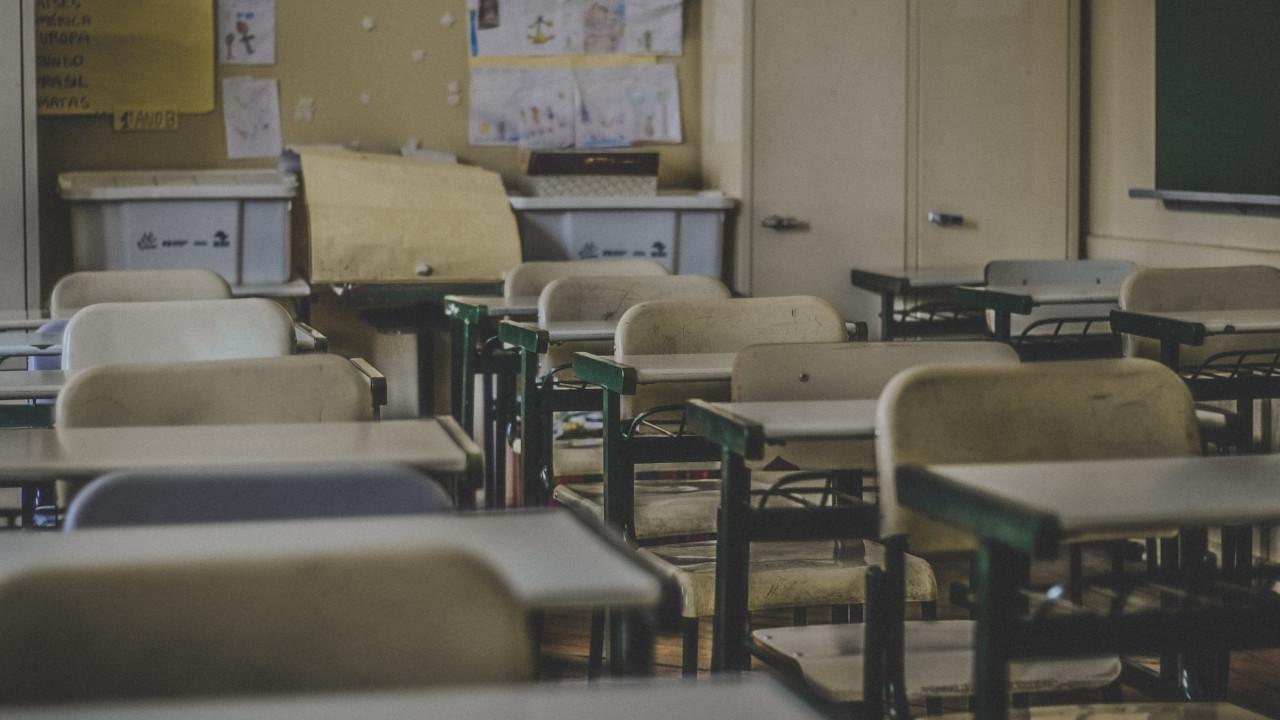News
Covid lockdowns impact teens’ mental well-being – Absence from school affects their state of mind

Connecting with friends and being part of group activities are suitable for teenagers’ mental health. But during COVID, the lockdown prevented teens from going to school or seeing friends meant many adolescents lost that support, hindering their social and emotional well-being, as per Bhekisisa.
Research reveals that 20% of children and teens will get a mental health disorder or a brain development problem. But only one in 10 can get help, highlighting the significant gap in young people’s access to mental health support.
Mental health problems often start before age 18, and in many cases, even by the time someone is 14 years old, which is why catching issues early — and putting things in place that can protect kids — is vital for building resilience in the next generation.
During these challenges, teenagers like Victor* and Gabriel* have found solace and expression through art. Drawing anime-like characters, popularised by Japanese cartoons, has become a passion for millions of teen artists worldwide.
Victor’s character, Hara Hetta, is a captivating creation with pink hair resembling an abstract world map and sharp, werewolf-like teeth. His inked lines are intentionally jagged, and the severe and penetrating gaze of Hara Hetta reflects the depth of Victor’s artistic expression.
Many other kids sit scattered among paint, paper, clay, and other materials, each absorbed in their creative endeavours. However, behind their artistic expressions lies a deeper story of resilience and healing.
Also read: New School Subjects Being Finalized by the South African Government
These teenagers, like Victor, have endured the social isolation brought about by the COVID-19 pandemic. The lockdown prevented them from attending school and disrupted their sense of normalcy.
Fortunately, they have found solace and support at Lefika La Phodiso, an after-school program at the Children’s Memorial Hospital in Johannesburg’s inner city, bridging the gap between Braamfontein and Hillbrow.
The centre’s name means “rock of holding and healing” in Sesotho and is a place that helps children to thrive through art. For Victor, it has been precisely what the name says for the past nine years.
“At first, I came for the food. I was this scared little boy. But [here] I met the amazing facilitators and counsellors [who spoke to me and got to know who I am].”
Victor lives with his family in Johannesburg’s densely populated inner city. When COVID hit, the lockdown prevented him from going to school. He didn’t attend for almost three years.
But since early 2023, he’s been at the National School of the Arts, thanks to Lefika helping him and his mom fill out forms, talking to the school about waiving the enrolment fee and assisting with admin matters.
During the COVID-19 lockdowns in 2020 and 2021, when kids’ school routines were upset for months, and he couldn’t see his friends, his mental health knocked.
He explains: “I began noticing so many faults in myself. That I don’t have good looks, that maybe my art isn’t good or my hair isn’t nice. I felt alone.”
When we reach adolescence, our brains change considerably to help us understand social interactions. These evolving and growing nerve paths in their brains make teenagers vulnerable to developing behaviour problems and mental health disorders, including depression, anxiety disorders, learning difficulties, and substance abuse disorders.
Unfortunately, the COVID-19 lockdown prevented many teens from going to school, exacerbating their existing mental health stressors caused by situations such as household unemployment, complex family dynamics, and food insecurity.
Research from the Children’s Institute at the University of Cape Town reveals that even with the best possible plans to promote mental health, 10–20% of children and teens will develop a mental health disorder or a problem with brain development. The lockdown measures amplified these challenges and disrupted the vital social and educational support systems schools provide for young people.
Over the past year, the COVID-19 lockdown has profoundly impacted South African teenagers, with the restrictions preventing many from attending school. This block has created a significant barrier to their education and mental well-being, further exacerbated by only one in 10 adolescents can access the help they need. In 2020, less than half of the World Health Organization’s member states had a mental health plan for adolescents. Additionally, research indicates that individuals from impoverished backgrounds had even more difficulty accessing mental health services. Early intervention is crucial, as studies reveal that a substantial portion of adults with mental health disorders experienced symptoms during their teenage years. Sahba Besharati, the co-founder of the Wits Neuroscience Research Lab, stresses the importance of social connections during adolescence and how external and internal factors can shape the adolescent brain, with long-lasting implications for adulthood. Rozanne Myburgh, managing director of Lefika, a registered arts therapy organisation, has witnessed firsthand the impact of social isolation on children’s mental health during the pandemic. She highlights the transformative power of returning to school, which provides a sense of normalcy, friendship opportunities, and a vibrant youth experience, ultimately boosting self-esteem and overall well-being.
The ongoing Asenze Cohort Study in KwaZulu-Natal, which has been tracking nearly 1,600 children since 2008, aims to unravel the impact of life circumstances on their health, social well-being, and brain development from childhood through adolescence. The fourth phase of the study, initiated in 2022, examines explicitly how the COVID-19 pandemic has altered critical social factors that influence teenagers’ health, such as employment opportunities and access to education.
Lead investigator Chris Desmond sheds light on the stark realities uncovered by their data thus far, revealing the significant disparities exacerbated by the pandemic. The study participants faced immense challenges due to the lack of laptops and access to Wi-Fi, impeding their ability to continue their education remotely. Desmond expresses uncertainty about fully recovering the lost years of schooling.
The impact of the pandemic is multifaceted and cumulative, Desmond emphasises. The economic repercussions resulted in job losses for many caregivers, coupled with other adversities such as the riots in KwaZulu-Natal in July 2021 and devastating floods in April 2022, further deepened the hardships children who grew up in impoverished families faced.
“What we see is that adolescents are not growing up in an environment that protects them. Adults also struggle with mental health and often don’t have the emotional bandwidth to respond appropriately to the teenagers in their care,” highlights Chris Desmond, emphasising adolescents’ lack of support and protective systems.
Tragically, since the commencement of the Asenze study in 2008, several teenagers within the group have succumbed to suicide, underscoring the devastating consequences of poor mental health during adolescence.
Also read: 10 of the most expensive schools in South Africa
Desmond explains, “It’s a spiral effect. The consequences of poor mental health in adolescence are a pathway to a difficult life,” illustrating the long-term impact that untreated mental health issues can have on individuals.
Experts caution that children’s mental health is not receiving the attention it deserves, despite the Department of Health’s development of policy guidelines for child and adolescent mental health as part of primary healthcare in 2003. The availability of dedicated psychiatric centres explicitly catering to the mental health needs of children and teenagers remains remarkably scarce.
The COVID-19 lockdown prevented teens from going to school, exacerbating the challenges adolescents face in South Africa’s mental health system. The Children’s Institute highlights the concerning statistic that only 15 psychiatrists in public hospitals specialise in working with children and adolescents, despite this age group comprising about a third of the country’s population.
Mark Tomlinson, co-director of the Institute for Life Course Health Research at Stellenbosch University, emphasises that the pandemic exposed society’s inadequate treatment of children and adolescents. He criticises the lack of consultation with young people about school closures and lockdowns, stating, “We threw kids under the train.” Tomlinson believes that involving teenagers in decision-making and understanding their desires is essential for effectively addressing mental health challenges.
Tomlinson stresses the importance of equipping teenagers with the necessary tools to manage mental distress, recognising it as a normal part of life. These tools include spending time with friends, participating in team sports, and having a supportive network. Additionally, he emphasises the significance of providing ample opportunities for meaningful connections and personal growth for young people.
Kylah Sim, a student counsellor in the “Volunteens” program at Lefika, has witnessed the positive impact of engaging teens in projects that foster resilience. Through activities such as cleaning the activity rooms and participating in workshops, learners develop essential life skills and contribute to their communities, providing a sense of purpose and support for their mental well-being.
The prolonged lockdown prevented teens from attending school, compounding the challenges adolescents face in South Africa’s mental health system. Amidst this crisis, programs like “Volunteens” at Lefika have provided hope by empowering teenagers with valuable life skills. Kylah Sim, a student counsellor in the program, explains how participants learned interviewing techniques and effective communication through the application process. As a result, their confidence has significantly grown, evident in their ability to develop proposals for connection events with staff members independently.
* We do not mention children’s surnames to protect their privacy.
Also read:
Picture: Unsplash / Feliphe Schiaroll
Follow us on Google News.






















